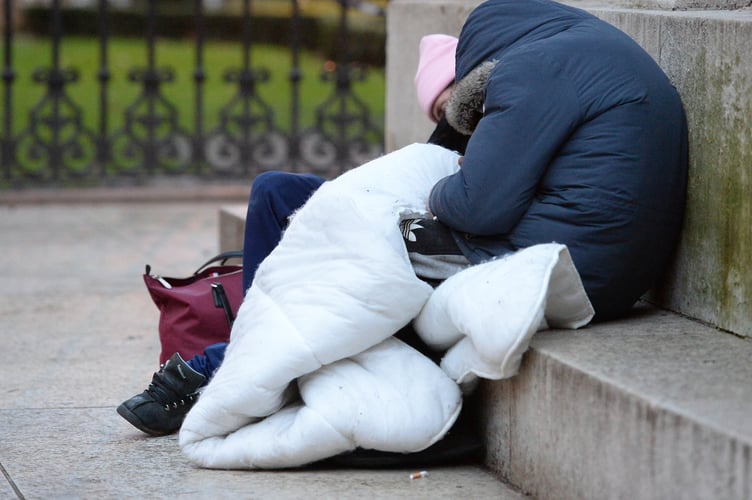Every young person facing homelessness in South Hams was successfully assessed, new research suggests.
Councils are obligated to assess anyone who seeks homelessness support. This means issuing a prevention duty, stopping them from becoming homeless if they are deemed to be at risk, or a relief duty, where the authority must help an already homeless applicant secure accommodation for at least six months.
But figures from youth housing and homelessness charity Centrepoint and WPI Economics show more than a third of 16-24-year-olds who present as homeless across England went unassessed in the year to March 2023.
It said it is "deeply concerned" councils do not have the required resources to carry out their homeless assessment duties, and called on the Government to address the crisis.
Research from the charity and WPI Economics shows all 88 young people who presented themselves as homeless to South Hams District Council in 2022-23 were successfully assessed.
But nationally, 120,000 young people presented as homeless in 2022-23, with over 40,000 estimated to have been left without support.
It means councils would need a 15% increase in government funding to cover the costs associated with assessing and supporting the same proportion of young people applying for help, equating to a shortfall of around £332 million.
Alicia Walker, head of policy, research and campaigns at Centrepoint said: "Councils have a legal duty to assess anyone who presents as homeless, but we are deeply concerned that they do not have the means to carry out these duties.
"It's not good enough that so many young people are not getting the chance of that assessment, let alone accessing support."
She added: "We can’t just blame councils for this. It’s clear they don’t have the resources to meet the increasing demand for homelessness services, and the Government needs to address this crisis."
Councillor Darren Rodwell, housing spokesperson for the Local Government Association, said councils have repeatedly raised concerns regarding the effect of the rising cost of living, running multiple asylum and resettlement programmes, and an insufficient supply of affordable housing.
Cllr Rodwell added: "We urge the Government to address the subsidy gap, so that councils have more money to spend on delivering homelessness and housing support, as well as provide multi-year funding to put towards crucial homelessness prevention activities."
The shortfall predictions are based on the unassessed applicants requiring the same level of support as those already screened.
A Department for Levelling Up, Housing and Communities spokesperson said: "We recognise that young people experiencing homelessness face particular challenges, and we want to ensure that they get the support they need.
"That is why we are spending £1.2 billion over three years to give councils the funding they need to prevent homelessness and help more people sooner, as well as supporting councils with our dedicated youth homelessness advisor roles."




